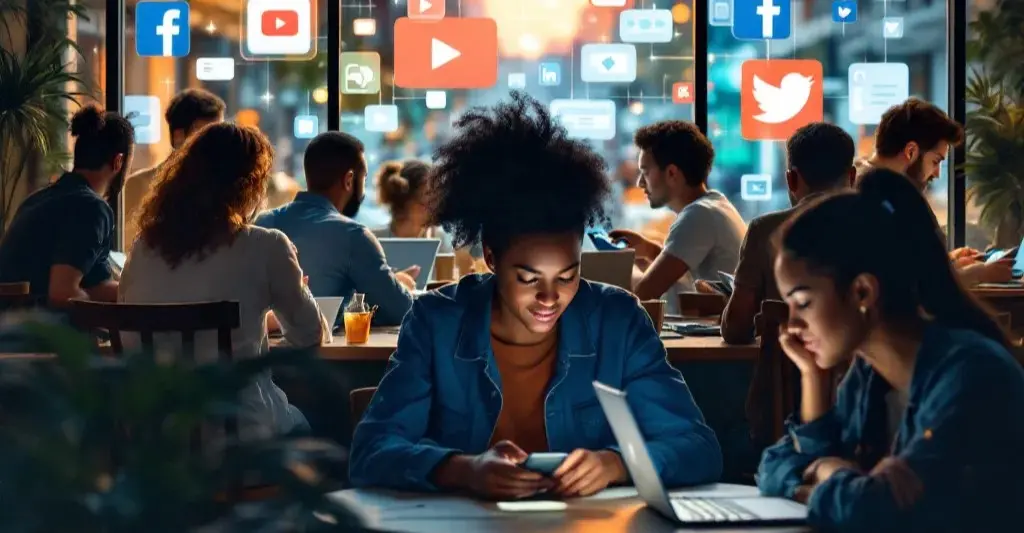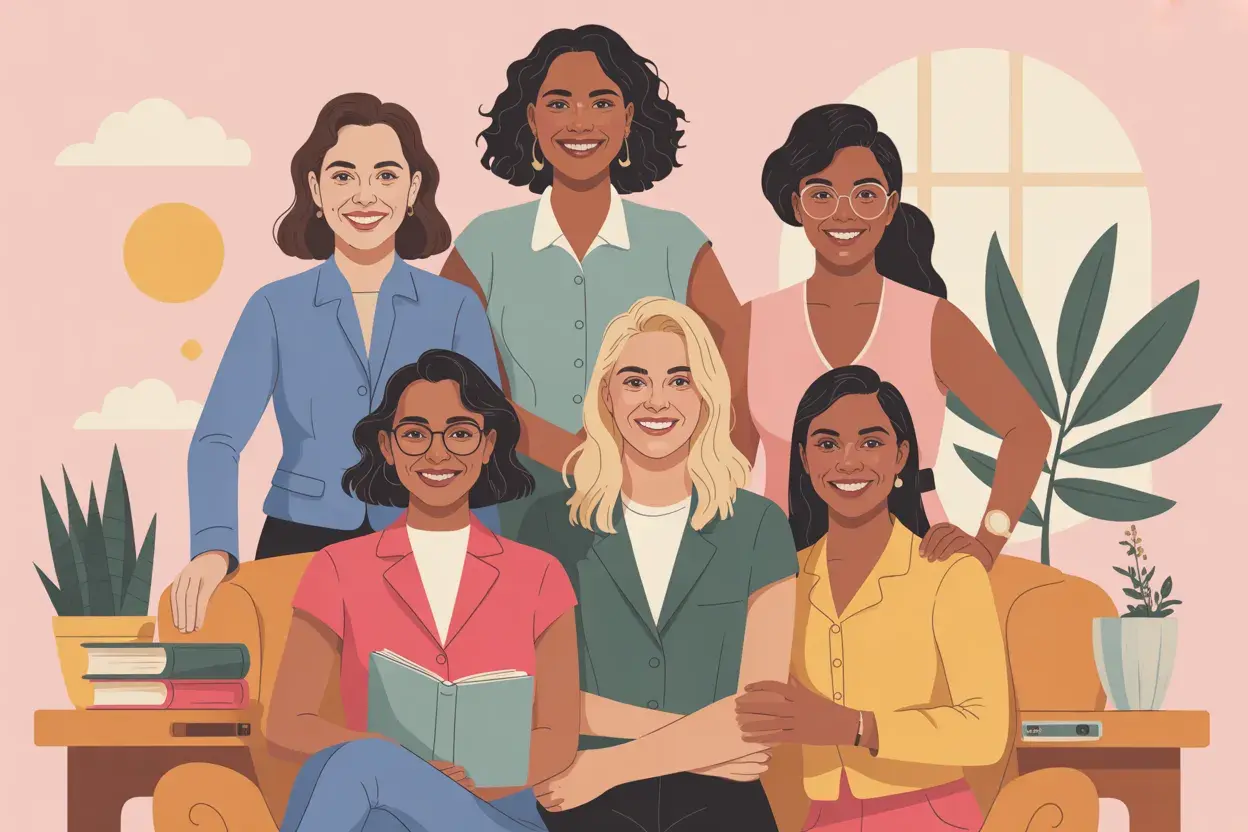Today, in a world of likes, shares, and virtual connections, many people find it difficult to develop real friendships online. Social media changed the way we orbit each other so it often feels like relationships are surface driven or performance based.” But underneath the digital noise, there are still ways to weed out the genuine connections that matter. The most vibrant friendships of the digital age will be birthed from real sharing, listening, and engagement that goes past the screen. By empowering people to prioritise quality conversations over follower counts, they are exploring connections that can transform their lives. When thoughtfully wielded, technology is a bridge, not a barrier.
Balance is crucial to nurturing friendships these days. Most successful relationships combine the digital with the meet-and-greet when possible. By exchanging genuine interests and vulnerabilities online while strengthening their bonds in person, people forge friendships that can hold through both technological evolution and tragedy.
Cultivating Authenticity Online
Being real online helps people make true friends even when they’re not meeting face-to-face. It’s possible to build meaningful connections that feel just as important as friendships that start in person.
The Role of Social Media
Social media platforms can both help and hurt our quest for authentic friendships. They give us ways to connect with people across the world who share our interests and values. This is something that wasn’t possible before the digital age.
However, these platforms often encourage us to show only our best sides. Many people post only their highlights, creating a false impression of their lives. This can make others feel inadequate.
For true friendships to grow online, people need to share both good and bad moments. Being honest about struggles creates deeper bonds than only sharing successes.
When used mindfully, social media becomes a tool for real connection rather than comparison. Sharing genuine thoughts and responding thoughtfully to others’ posts builds trust over time.
Understanding Dunbar’s Number
Dunbar’s number suggests humans can only maintain about 150 meaningful relationships at once. This applies to online friendships too! Our brains haven’t evolved to handle unlimited social connections, regardless of technology.
Dunbar’s Relationship Circles:
- 5 closest friends (intimate)
- 15 good friends (close)
- 50 friends (regular contact)
- 150 meaningful connections (know reasonably well)
Many people have hundreds or thousands of “friends” on social networks, far exceeding what our minds can process meaningfully. This can lead to shallow interactions rather than deep connections.
Quality matters more than quantity in online relationships. It’s better to invest time in fewer, deeper digital friendships than trying to maintain countless surface-level connections.
Navigating Digital Friendships
Digital friendships require intentional effort to flourish. Regular check-ins through messages, video calls, or comments help maintain the connection. Even small interactions like reacting to a post can signal that you’re thinking of someone.
Trust builds differently online than in person. Without facial expressions and body language, we rely more on consistent behavior over time. Showing up when you say you will matters greatly in digital relationships.
It helps to:
- Ask thoughtful questions
- Remember details from previous conversations
- Share your real thoughts and feelings
- Respect boundaries about response times
Moving between online and offline spaces can strengthen digital friendships. When possible, meeting in person adds new dimensions to relationships that began online. Many lasting friendships now begin in digital spaces before expanding into face-to-face connections.
Fostering Meaningful Connections
Creating genuine relationships in our digital world requires intention and care. The way we connect with others has changed, but the human need for authentic bonds remains the same.
The Importance of Face-to-Face Interactions
There is no alternative to an in-person meeting in terms of value. In-person meetings foster greater emotional bonds through nonverbal signals such as eye contact, facial expressions, and body language, which are often lost in digital communication. Studies consistently show that those who regularly participate in in-person social activities have greater happiness and life satisfaction.
Even brief in-person interactions can solidify relationships more than being weeks-long textmates. Perhaps it helps to set up standing coffee date, walks in the park, or dinner with friends. These help create shared experiences and memories that link people together. For long-distance friendships, video calls are a significant improvement over text-only communication. This adds depth to the words we use to try to connect with one another.
Leveraging Technology for Deeper Bonds
Digital tools can enhance friendships when used thoughtfully. Apps like Marco Polo allow friends to share video messages that capture authentic moments and expressions without requiring both people to be available simultaneously.
Social media works best as a supplement to real connections, not a replacement. Use platforms to:
- Share meaningful life updates
- Coordinate in-person gatherings
- Send direct messages about specific shared interests
- Connect with friends through shared articles or videos
Private messaging groups focused on common interests often create stronger bonds than public posting. These smaller spaces encourage more honest sharing and deeper conversations.
Regular video calls with distant friends help maintain closeness despite physical separation. Setting recurring calendar dates makes these connections a priority.
Safeguarding Mental Health Online
There are times when our digital connections can be detrimental to our well-being. Research indicates that the overuse of social media is associated with rising feelings of loneliness and anxiety. Practice mindful consumption by:
- Setting time limits for social apps
- Turning off non-essential notifications
- Taking regular digital detoxes
- Unfollowing accounts that make you inherently feel bad every single time you see them
Most people share highlights, not daily life, remember that! This curated perspective can skew reality and lead to unhealthy comparisons. Concentrate on quality not quantity , in virtual friendships. The joy of a handful of real connections far outweighs dozens of surface-level ones.
Check in with yourself regularly about what you feel after digital interactions. If some platforms consistently leave you feeling depleted, think about decreasing your time there


